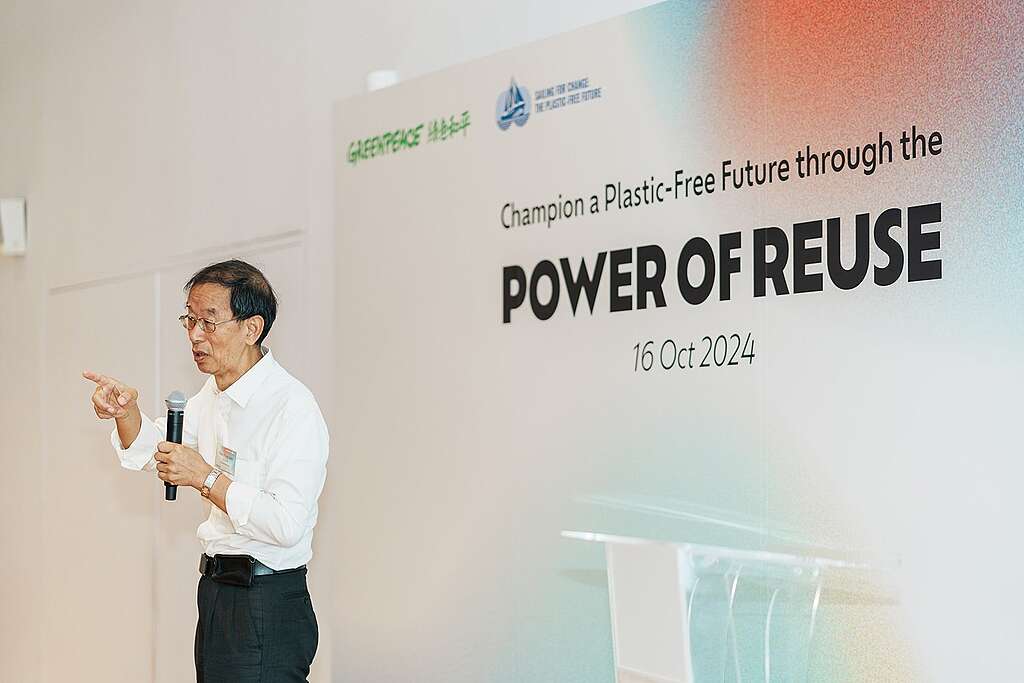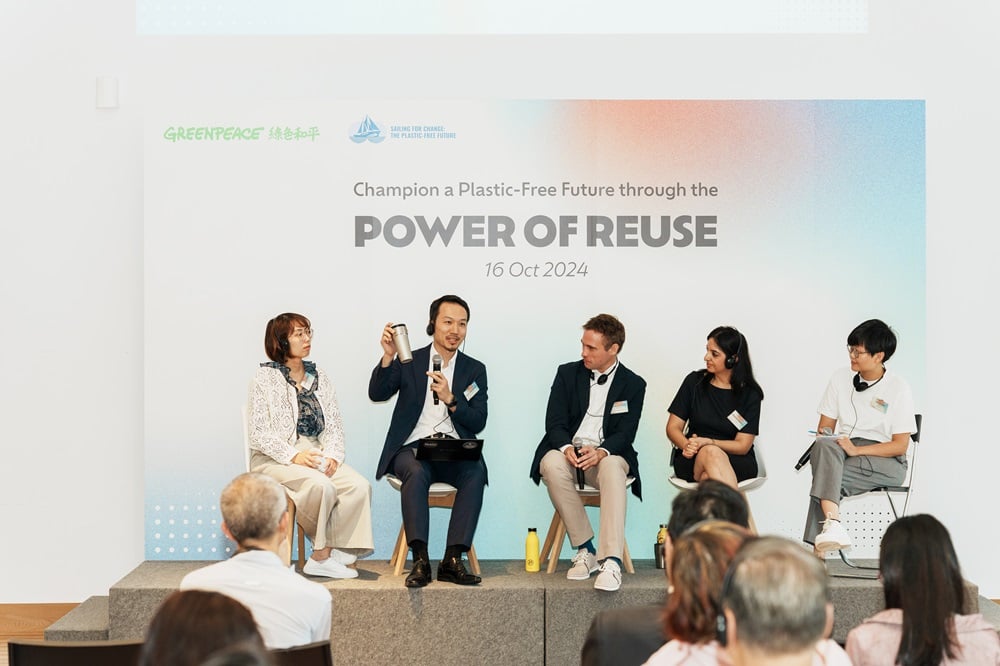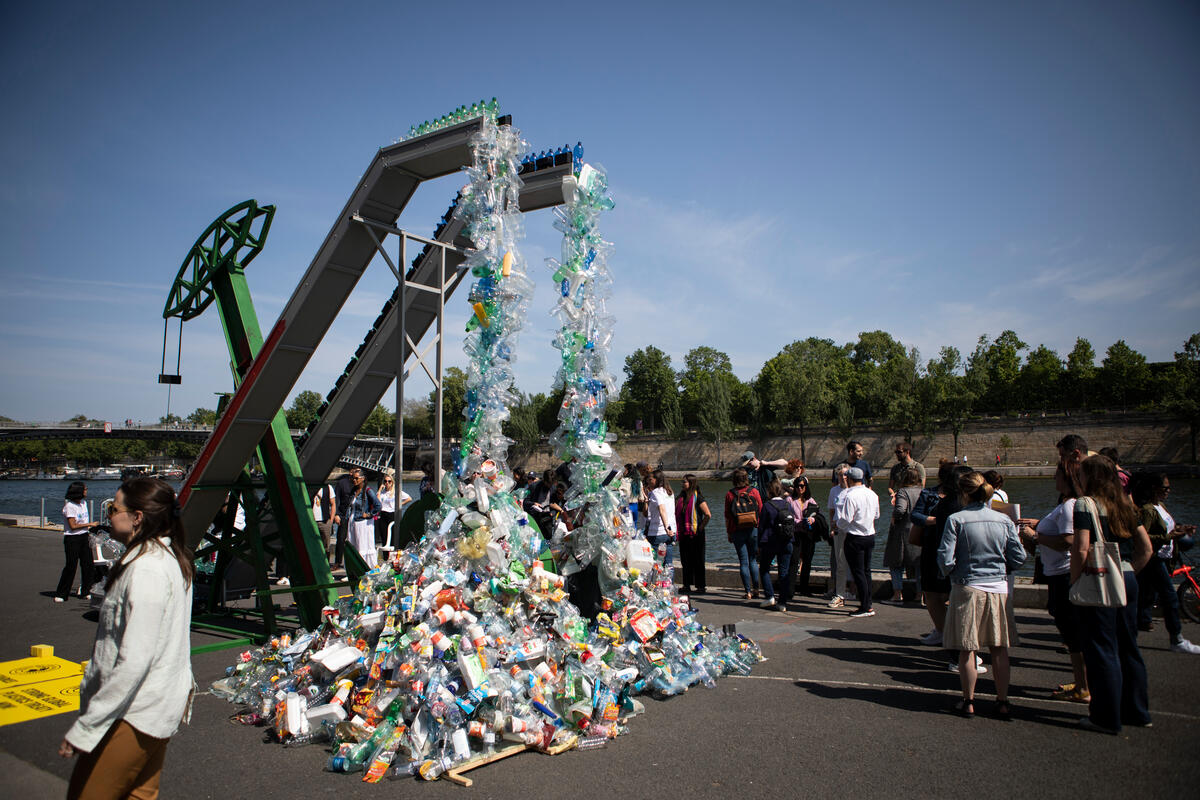On October 16, Greenpeace hosted the seminar “Champion a Plastic-Free Future through the Power of Reuse”, bringing together experts, scholars, government officials, and industry leaders to emphasize the importance of resource reuse from diverse perspectives. The discussion underscored the urgency of moving beyond single-use plastics, with industry professionals presenting business cases and showcasing various reuse systems from East Asia that are overcoming practical barriers and making a tangible impact by replacing disposables with sustainable, reusable alternatives.
Hong Kong’s First Steps Towards Plastic-Free Policies
The seminar welcomed Dr. Chui Ho Kwong, Samuel, Director of the Environmental Protection Department, as a speaker. Dr. Chui shared updates on Hong Kong’s recent single-use plastic ban, implemented in April this year. The first phase of this legislation has been largely successful, marking a significant step in the city’s journey toward a plastic-free future. Dr. Chui also highlighted that many single-use plastic items can be replaced by reusable alternatives, such as using mobile phone lights instead of inflatable plastic cheering sticks.
Recycling is NOT the real sustainable cycle
Hong Kong meteorologist and climate change advocate, Lam Chiu Ying, underscored the urgent link between plastic and global warming, quoting UN Secretary-General António Guterres’ warning that “we are on a highway to climate hell with our foot on the accelerator”. Since the 1970s, global warming has begun to intensify. From September 2023 to August 2024, the world recorded the twelve hottest months on record, with the average temperature over the course of a year exceeding pre-industrial levels by 1.64°C, surpassing the 1.5°C threshold of concern. Similarly, we are heading toward a “plastic hell”, where plastic pollution and the pervasive presence of microplastics are posing grave risks to both ecosystems and human health.

Moreover, the rampant plastic pollution and climate disasters are two sides of the same issue. Although plastic recycling has gained traction, he stressed that it is not a real solution. Recycling consumes additional energy and leaves non-recyclable waste, which prevents a truly circular, zero-waste system. Reducing and reusing existing resources, while eliminating the production of new plastics, is essential to confronting climate change.
Corporations Leading Reuse and Borrow-Return Systems
Reusing resources is easier said than done, yet some corporations have taken the lead in experimenting with reuse initiatives to gain a competitive edge. At the seminar, Sabrina Wang, Senior Manager of Brand Communications at Taiwan FamilyMart, and Hu Tuan Yuan, CEO of Hwa Seng Bottled Water Corp., shared their experiences in promoting reusable containers. FamilyMart, for instance, has launched reusable cup services in more locations than legally required, aiming to provide a cross-industry network for customers to easily borrow and return cups across Taiwan. Hwa Seng Bottled Water promotes eco-friendly glass water bottles to encourage reuse and reduce reliance on single-use plastics.

Global Plastics Treaty Fosters Cooperation
In light of the threats posed by plastic pollution and climate change, Hiroaki Odachi, Plastic-Free campaign coordinator of Greenpeace, emphasized that establishing the Global Plastics Treaty is a crucial step forward. A strong international treaty is needed to limit plastic production and enforce reduction policies. While previous international conferences have made some headway—garnering increasing support from countries to limit plastic production and use—Odachi highlighted that the negotiations at the end of 2024 mark a pivotal opportunity for breakthroughs in finalizing the treaty.


-1.jpg)

